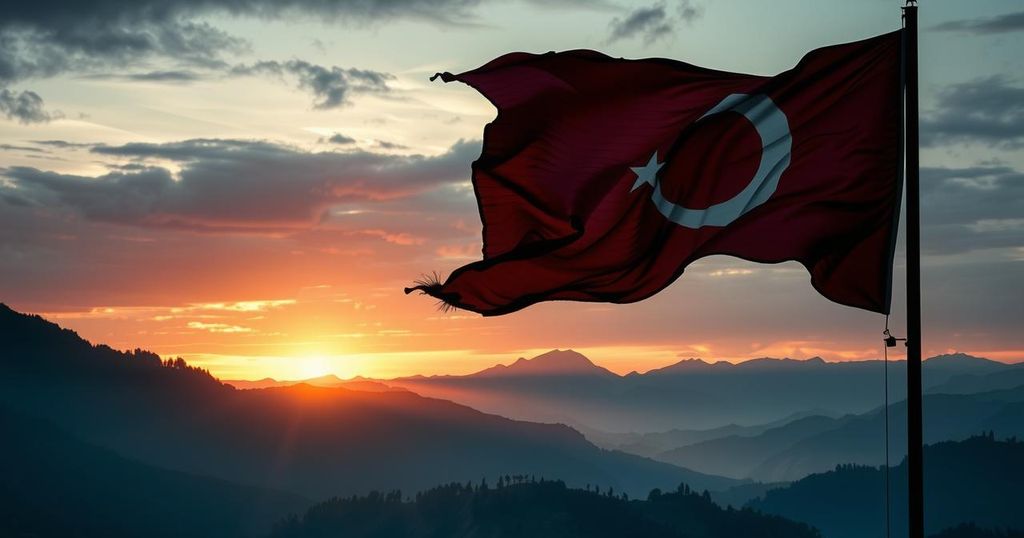M23 Rebel Group’s Leadership Shift Under Corneille Nangaa in Congo

The M23 rebel group has undergone a notable transformation with the emergence of Corneille Nangaa as its leader, moving away from its Tutsi-dominated past towards a more inclusive Congolese identity. This shift aligns with the group’s intentions to engage in national discussions of autonomy and leverage alliances within eastern Congo. Nangaa’s prior experience as the electoral chief influences this political maneuvering, amidst ongoing military support from Rwanda.
KAMPALA, Uganda (AP) — The recent takeover of Goma, the largest city in eastern Congo, by the Rwanda-supported M23 rebel group marked a pivotal moment in its leadership dynamics. Rather than the group’s longstanding military figure Sultani Makenga, Corneille Nangaa, a non-Tutsi and former head of Congo’s electoral body, emerged as the new leader, signaling a shift towards a more inclusive Congolese representation within the M23. Nangaa’s aspirations include advancing all the way to Kinshasa, the national capital.
This transformation illustrates the M23’s evolution from a predominantly Tutsi faction to a group positioning itself as a Congolese nationalist entity, despite ongoing military backing from Rwanda. Analysts note that threats from M23 have intensified, as the group seeks to express broader grievances regarding perceived neglect in eastern Congo. Nangaa’s leadership also aims to initiate essential discussions regarding autonomy and potentially foster negotiations with the Congolese government.
Nangaa, who has faced political controversy, previously served as the chair of Congo’s electoral commission. His exile followed disagreements with the government over a mining concession and other grievances, which have now propelled him towards joining the Congo River Alliance—a political-military coalition designed to challenge President Félix Tshisekedi’s government. His personal grievances are linked to earlier sanctions imposed by the U.S. for perceived undermining of Congolese democracy.
M23 rebels now operate under Nangaa’s Congo River Alliance, amplifying their threat to the Congolese authorities. This cooperative strategy allows them to concentrate resources and generate alliances with various armed groups in eastern Congo. Analysts suggest that this strengthening of alliances reflects Rwanda’s probable strategy to create a Congolese façade while maintaining territorial control over North Kivu.
The United Nations has acknowledged the presence of Rwandan troops aiding the M23, which has demonstrated military successes in Goma. The historical context of M23’s resurgence, following a period of defeat, is important. Once acknowledged as defeated, the group regrouped, signaling both resilience and adaptability in pursuing control over eastern Congo, rich in valuable minerals essential for global technology.
The emergence of Nangaa introduces a politically astute face for the M23, as he is from Haut-Uele instead of being Tutsi. His leadership accentuates the group’s intention to adopt a more diverse, Congolese identity. Recent analysis indicates that the group, along with its backers, aims to establish a civilian administration and expand mineral exploitation in the region, demonstrating their long-term ambitions for territory and influence.
In a recent news conference, Nangaa articulated the rebels’ commitment to returning displaced people to Goma, presenting a challenge to the Tshisekedi administration. His declaration, “We are here in Goma to stay as Congolese,” underscores M23’s intent to fortify its presence and extend their influence further into the Congolese political landscape.
The M23 rebel group’s recent developments in eastern Congo, marked by Corneille Nangaa’s rise to leadership, depict a significant shift towards a more inclusive identity. As it transitions from a predominantly Tutsi faction to a broader Congolese nationalist outlook, the implications of this transformation could impact regional politics and lead to deeper negotiations regarding the governance and autonomy of eastern Congo amidst ongoing tensions.
Original Source: apnews.com







